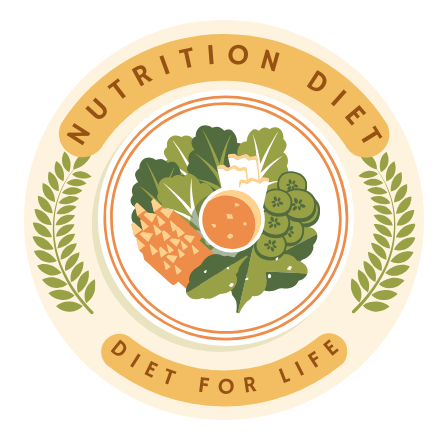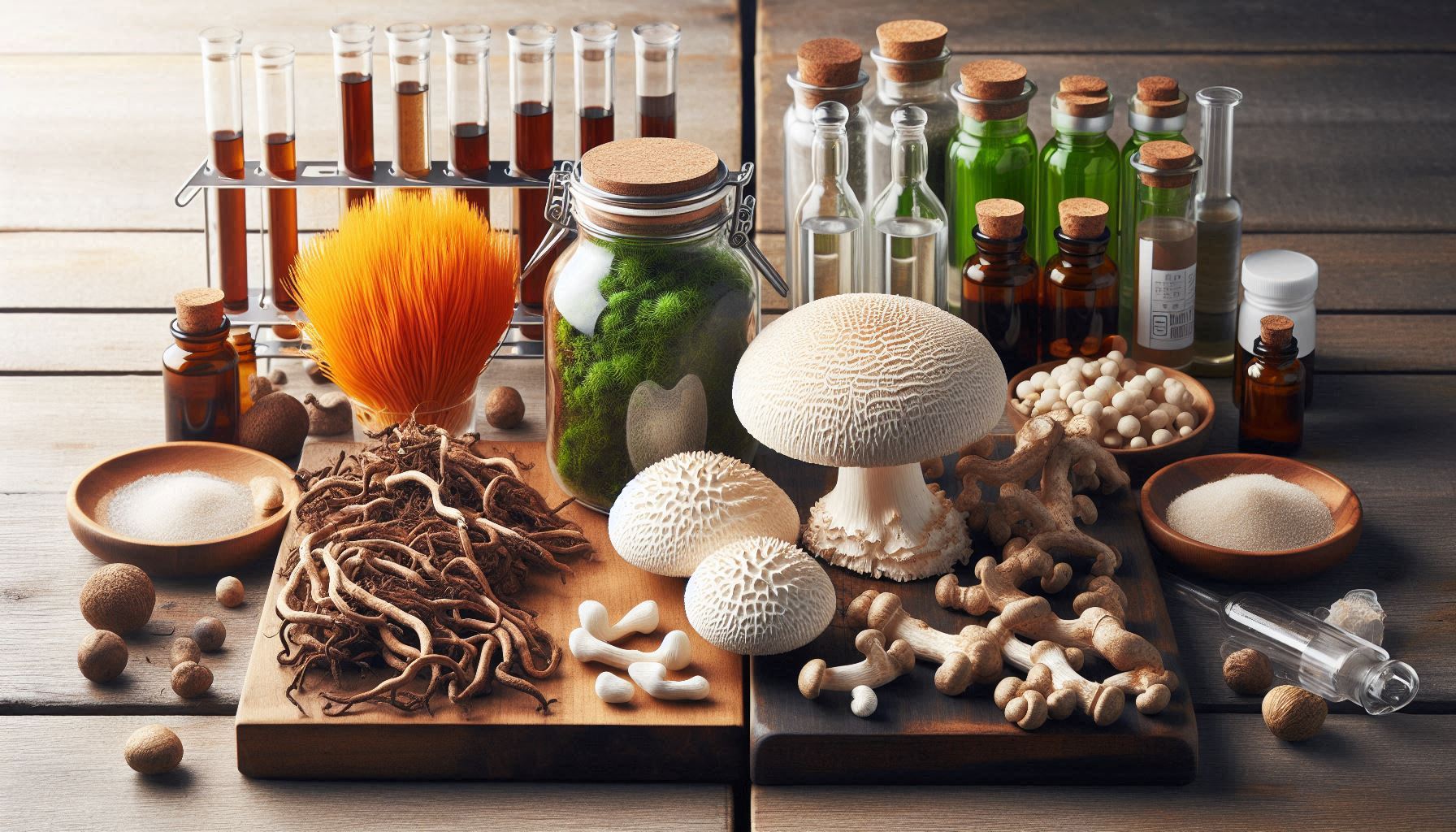In today’s world of wellness trends and bio hacking obsessions, the term “super food” has become both a badge of honor and a marketing buzzword. From kale to acai berries to match, the shelves of health stores are loaded with products that promise miraculous benefits, often based on a few trending studies or celebrity endorsements. But are these claims grounded in science, or are we chasing hype?
Among the rising stars in this landscape are Sea Moss, Lion’s Mane mushroom, and Ashwagandha. These three have been hailed in the wellness community as nature’s secret weapons for everything from boosting brain power and calming stress to detoxifying the body and enhancing immunity. Touted in Ticktack videos, Reedit testimonials, and even celebrity interviews, they’ve gone mainstream fast. But do they live up to the buzz?
This comprehensive guide is designed to cut through the fog. With a blend of traditional knowledge, biochemical analysis, peer-reviewed science, and practical insights, we’ll explore whether Sea Moss, Lion’s Mane, and Ashwagandha truly deserve the label of “super food” — or if they are simply beneficiaries of a well-oiled wellness marketing machine.
We’ll explore each of the three in detail: tracing their ancient roots, examining their active compounds, reviewing clinical trials, and weighing real-world usage against evidence-based health claims. We’ll also look at possible side effects, dosage standards, and how they’re being used in popular supplement stacks and daily routines. Along the way, we’ll separate fact from fiction with a myth-busting section, and close with clear, practical recommendations for anyone interested in trying these supplements.
Whether you’re a health-conscious individual, a curious skeptic, or someone considering adding these herbs to your daily regimen, this article is your science-backed, no-fluff guide to understanding Sea Moss, Lion’s Mane, and Ashwagandha. With 12 sections covering every angle in depth, our goal is to help you make an informed, balanced decision.
So, is it all super food… or superhype? Let’s dive in and uncover the truth.
Historical & Traditional Use
Long before health influencers and wellness companies began touting Sea Moss, Lion’s Mane, and Ashwagandha as miracle substances, these ingredients had deeply rooted roles in ancient healing traditions across the globe. Understanding their cultural and historical context helps demystify why they’ve gained modern interest—and whether that interest might be justified by centuries of use.
Sea Moss, also known as Irish Moss (scientific name Chorus crisps), has a long legacy along the Atlantic coastlines of Europe and the Caribbean. Used for centuries in Irish folk medicine, sea moss gained popularity during the Irish Potato Famine in the 1800s, when it served as a vital source of nutrients. Traditionally boiled into a gel and used to soothe respiratory issues, improve digestion, and support convalescence, it also made its way into Caribbean cultures—particularly Jamaica—where it was consumed as a strength tonic for libido and general vitality. In both regions, the use of sea moss was rooted in practicality: it was abundant, shelf-stable, and rich in minerals like iodine, magnesium, and potassium.
Lion’s Mane Mushroom (Heraclius erinaceous) has been a prized component of Traditional Chinese Medicine (TCM) and Japanese herbal practices for over 1,000 years. Known in Chinese as “Hour Too Good,” meaning “monkey head mushroom,” it was traditionally prescribed to support the spleen, nourish the gut, and strengthen the brain. Buddhist monks were said to consume Lion’s Mane to enhance focus during meditation. The mushroom’s unique cascade of bioactive compounds—particularly erinacines and hericenones—is now being studied for their potential neurodegenerative effects, lending modern credibility to its ancient use as a brain tonic.
Ashwagandha (Lithuania somniferous), often referred to as “Indian ginseng” (though botanically unrelated), has been a cornerstone of Ayurveda for over 3,000 years. Its name comes from Sanskrit: “ashram” (horse) and “Gandhi” (smell), referencing the strength of a horse and its distinct aroma. Ayurveda practitioners used Ashwagandha to promote strength, vitality, and virility, especially in times of stress or debility. It was traditionally prescribed to improve memory, support reproductive health, and restore balance in the body’s energy systems, known as “dishes.” Considered a Ramayana (rejuvenating tonic), Ashwagandha’s role in Ayurveda aligns with its current use as an adaptive—a substance believed to help the body resist physical and mental stress.
These traditional roots offer compelling reasons to explore these herbs further. Though history alone doesn’t prove efficacy, centuries of use often point researchers toward bioactive potential—and that’s where modern science steps in.
Biochemical Profiles
To understand whether Sea Moss, Lion’s Mane, and Ashwagandha truly earn their place in the “super food” category, we need to look past the buzzwords and into the biochemical makeup of each. The nutritional and phytochemical components of these substances are the foundation for their supposed health benefits—and what science has begun to confirm (or question).
Sea Moss is often marketed as a mineral powerhouse, and that claim holds some truth. It’s particularly rich in iodine, a critical nutrient for thyroid health. It also contains calcium, magnesium, potassium, iron, zinc, and selenium. These trace elements are essential for cellular health, nerve function, and metabolic processes. Sea Moss is composed largely of polysaccharides, especially carrageenan, which gives it its gel-like consistency. Carrageenan has been shown to have mild immunomodulatory and anti-inflammatory effects in lab studies. However, it’s also controversial—processed carrageenan used as a food additive has been linked to digestive issues in some animal studies, though whole Sea Moss in natural forms is generally considered safe. Sea Moss also contains amino acids, B vitamins, and some fiber, which contributes to gut health.
Lion’s Mane Mushroom boasts a more complex pharmacological profile. It contains a group of compounds known as erinacines and hericenones, which have been shown in preclinical studies to stimulate the production of nerve growth factor (NGF)—a protein essential for the growth, maintenance, and survival of neurons. NGF plays a major role in cognitive function, and impaired NGF levels have been associated with neurodegenerative diseases like Alzheimer’s. In addition to its retroactive components, Lion’s Mane contains beta-gleans, polysaccharides with known immune-boosting and anti-inflammatory properties. The mushroom is also a source of antioxidants, which help protect cells from oxidative stress. This unique combination of neurotropic and immune-supportive molecules makes Lion’s Mane especially promising for brain and mood health.
Ashwagandha, on the other hand, is loaded with withanolides—steroidal lactones that have been the focus of much scientific attention. These compounds appear to exert a variety of effects on the body, including modulating the stress hormone cortisol, reducing inflammation, and possibly enhancing cognitive function. Some withanolides also have anti-tumor and neuroprotective potential in preclinical settings. Ashwagandha also contains alkaloids, sapiens, and flavonoids, which contribute to it’s adapt genic and antioxidant actions. While the exact mechanisms are still being mapped, the herb’s ability to influence the hypothalamic-pituitary-adrenal (HPA) axis is a major reason it’s so widely used to counteract stress, fatigue, and anxiety.
Taken together, these three ingredients offer robust biochemical profiles that are consistent with many of their claimed benefits. But having bioactive compounds is just the start—the real question is how these compounds perform in the human body, which we’ll explore next in clinical evidence.
Clinical Evidence Summary
While traditional uses and nutrient profiles offer a compelling foundation, it’s the clinical research—the human trials and peer-reviewed studies—that truly determine whether a substance can be considered effective and safe. For Sea Moss, Lion’s Mane, and Ashwagandha, the strength of evidence varies significantly. Some are supported by decades of scientific inquiry; others are still in the early stages of exploration.
Let’s start with Sea Moss. Despite its centuries of folk use and modern popularity, the body of clinical research on Sea Moss (Chorus crisps and related species) is still quite thin. Most studies have focused on its primary component, carrageenan, which has shown both positive and controversial effects. In animal and in vitro models, carrageenan has demonstrated anti-inflammatory and antiviral properties. However, the type used in processed foods has been linked to gastrointestinal irritation, which often leads to confusion around its safety. There is some early data suggesting Sea Moss may support gut health and immunity, but well-controlled human trials are largely lacking. The most evidence-backed benefit of Sea Moss lies in its iodine content, which supports healthy thyroid hormone production in iodine-deficient individuals.
Lion’s Mane mushroom, by contrast, is supported by more promising early-stage research—particularly in the area of cognitive health. A small number of randomized controlled trials (RCTs) have explored Lion’s Mane’s effects on mild cognitive impairment, memory, anxiety, and depression. One landmark Japanese study (Mori et al., 2009) found that elderly participants who consumed 3g of Lion’s Mane daily for 16 weeks showed significant improvements in cognitive function compared to placebo. The benefits waned when supplementation stopped, suggesting that sustained use may be necessary. Other trials have found reductions in symptoms of anxiety and depression, particularly when paired with stress management. Although these studies are small, they are consistent with animal research that shows Lion’s Mane may enhance nerve regeneration and reduce inflammation in the brain.
Ashwagandha, meanwhile, has one of the strongest research bases among modern adaptogens. Numerous RCTs support its benefits for stress, sleep, anxiety, and cognition. In a 2019 study published in Medicine (Baltimore), participants taking 600mg of standardized Ashwagandha extract (KSM-66) experienced a 44% reduction in cortisol levels, the body’s primary stress hormone, compared to a placebo group. Other studies have confirmed its ability to improve sleep quality, reduce fatigue, and even enhance memory and executive function. Importantly, Ashwagandha has also shown promise in improving physical endurance, testosterone levels in men, and thyroid function—though more research is needed to confirm these effects in broader populations.
In summary, while all three have encouraging early data, Ashwagandha stands out as the most rigorously studied with consistent human trials. Lion’s Mane is emerging, with exciting but still limited evidence, while Sea Moss remains the least clinically supported, relying more on traditional use and nutritional content than hard science—at least for now
Cognitive & Mood Effects
In the ever-growing search for natural brain boosters and mood stabilizers, Sea Moss, Lion’s Mane, and Ashwagandha have each found their way into inotropic stacks, wellness drinks, and even therapy recommendations. But how effective are they really when it comes to supporting mental clarity, focus, memory, and emotional balance? Let’s break it down one by one.
Sea Moss doesn’t have a direct reputation for enhancing cognition, but its effects on overall health—particularly thyroid function, gut health and inflammation—may have indirect benefits for mental wellness. The thyroid, for instance, plays a central role in regulating metabolism and energy. Hypothyroidism (underactive thyroid), often linked to iodine deficiency, can cause fatigue, brain fog, and depression. Sea Moss is naturally rich in iodine, which helps support healthy thyroid hormone levels—potentially improving cognitive performance in people with deficiencies. Sea Moss also provides small amounts of B vitamins, zinc, and magnesium, all of which play roles in neurotransmitter function and mood regulation. However, it’s important to note that no controlled studies have directly shown that Sea Moss improves cognitive performance or mood. So while it may contribute to the body’s nutritional foundation for mental health, it is not a direct inotropic.
Lion’s Mane, on the other hand, is one of the most promising natural substances for brain health currently under study. Its key compounds—hericenones and erinacines—stimulate the production of nerve growth factor (NGF), a protein critical for the survival, repair, and growth of neurons. NGF plays a vital role in neuroplasticity, which is the brain’s ability to adapt and form new connections—something that naturally declines with age and under chronic stress. Animal studies have consistently shown improved memory and learning with Lion’s Mane supplementation. In humans, a handful of clinical trials suggest real cognitive benefits. Participants in these studies have shown improved memory recall, reduced brain fog, and enhanced focus. Some also report mood-boosting effects, possibly due to Lion’s Mane’s anti-inflammatory and neuroprotective properties. Though more large-scale research is needed, current findings point to Lion’s Mane as one of the most compelling mushrooms for neurocognitive support.
Ashwagandha’s cognitive and mood effects stem from its classification as an adaptogen—a substance that helps the body cope with physical and emotional stress. Its main action is on the HPA axis, the system that controls cortisol production. Multiple studies have demonstrated that Ashwagandha reduces levels of cortisol, the stress hormone, by 20–30% in stressed individuals. Lower cortisol can translate to less anxiety, more emotional stability, and improved memory and concentration. In a 2020 double-blind trial, participants taking 300–600 mg of Ashwagandha daily reported significant reductions in anxiety and insomnia, as well as improved focus during the day. Some research even suggests it may enhance executive function and working memory, especially in older adults or individuals under chronic stress. Ashwagandha doesn’t work as a stimulant—it promotes calm clarity rather than jittery alertness, making it ideal for those who want mental sharpness without the crash of caffeine.
Physical Health & Wellness
When people think of super foods, they often imagine physical vitality, increased stamina, stronger immunity, and better recovery. Sea Moss, Lion’s Mane, and Ashwagandha each claim to support physical well-being, but in different ways—ranging from hormonal balance to immune function to muscle strength. Let’s explore what current research and traditional practices tell us about their effects on physical health.
Sea Moss: Mineral-Rich and Anti-Inflammatory
Sea Moss is often described as “nature’s multivitamin.” It contains up to 92 of the 102 minerals the human body needs, including iron, magnesium, zinc, potassium, and iodine. These trace minerals are crucial for everything from energy production to enzyme function to hydration. One of Sea Moss’s standout features is its mucilaginous (gel-like) texture, attributed to carrageenan and other polysaccharides, which may soothe the digestive tract and support gut health. A healthy gut, in turn, supports immunity and nutrient absorption.
There is also growing anecdotal support for Sea Moss as a natural libido and energy booster, particularly in Caribbean cultures where it’s used in vitality tonics. While clinical research is lacking, it may aid post-exercise recovery by reducing inflammation and replenishing electrolytes. That said, people with thyroid issues should use caution—Sea Moss is high in iodine, which could worsen hyperthyroid conditions if consumed in excess.
Lion’s Mane: Immune Modulation and Inflammation
While Lion’s Mane is best known for brain benefits, it also has effects on immune health and digestive wellness. Its high content of beta-gleans—a type of soluble fiber—has been shown to stimulate the immune system, enhance macrophage activity, and balance inflammatory responses. These immune-modulating effects may help the body better manage infections, reduce chronic inflammation, and recover from stressors.
Some research also suggests that Lion’s Mane may improve gastrointestinal function, particularly in cases of ulcers and leaky gut. Animal studies have shown it may protect the stomach lining, which can support digestion and reduce symptoms like bloating or acid reflux. Though these effects aren’t yet confirmed in large human studies, early data and centuries of traditional use point toward Lion’s Mane as a gentle support for the immune and digestive systems.
Ashwagandha: Strength, Hormones, and Endurance
Of the three, Ashwagandha has the most robust physical health profile backed by clinical evidence. Studies show it can significantly improve strength, endurance, and cardiovascular performance. A 2015 study published in The Journal of the International Society of Sports Nutrition found that healthy adults taking 600mg of Ashwagandha extract daily experienced significant increases in muscle mass, strength, and exercise recovery over eight weeks compared to placebo.
Ashwagandha also supports hormonal balance—notably testosterone in men and thyroid hormone production in both sexes. It has shown promise in improving fertility parameters, such as sperm count and motility, and may help regulate menstrual cycles in women with hormonal imbalances. Combined with its anti-stress effects, Ashwagandha presents a compelling option for that seeking total-body resilience.
Immune System and Inflammation Support
One of the most universally desired outcomes from any supplement or super food is a stronger immune system. Whether it’s for fighting off everyday infections, reducing systemic inflammation, or supporting long-term health, immunity plays a central role in how we feel and function. Sea Moss, Lion’s Mane, and Ashwagandha each have documented effects in this area—some better supported by science than others.
Sea Moss: Natural Mineral Support for Immunity
Sea Moss’s role in immune function is largely indirect, yet valuable. As a rich source of minerals—especially zinc, selenium, iron, and iodine—it helps fuel cellular health and repair, which are foundational to immune response. These minerals are involved in hundreds of enzymatic reactions, including those needed to form white blood cells and fight off pathogens.
Sea Moss also contains sulfated polysaccharides, particularly carrageenan, which has demonstrated antiviral properties in lab settings. Some studies show carrageenan can inhibit the replication of viruses like influenza and HPV by interfering with their ability to attach to host cells. Though promising, these studies use isolated compounds—not necessarily whole Sea Moss in dietary form—so more research is needed.
Its mucilaginous fiber also helps promote gut health, and since 70% of the immune system resides in the gut, supporting digestive function can indirectly benefit immune strength. However, the lack of human clinical trials makes it difficult to draw firm conclusions about Sea Moss’s direct immune-enhancing effects.
Lion’s Mane: Immune Balancer and Anti-Inflammatory Ally
Lion’s Mane’s immune benefits are more grounded in both animal studies and lab research. Its beta-gleans are key here—these naturally occurring polysaccharides are known to modulate immune response, not just stimulating it, but regulating it. That means they help the body ramp up defense mechanisms when needed, while also keeping chronic inflammation in check.
Studies show Lion’s Mane can increase the activity of immune cells such as natural killer (NK) cells, macrophages, and lymphocytes. This suggests it may support both innate and adaptive immunity, making it a potential ally for long-term immune resilience.
Lion’s Mane is also increasingly studied for its anti-inflammatory effects, especially in the nervous system. Its ability to reduce pro-inflammatory cytokines may benefit people with autoimmune tendencies or chronic inflammatory conditions. However, human research in this area is still emerging.
Ashwagandha: Adapt genic Immunity Enhancer
Ashwagandha is one of the few herbs with both ancient and modern evidence supporting its immune-modulating powers. In Ayurveda medicine, it’s classified as a “Ramayana”—a rejuvenator that strengthens the body’s ability to resist disease. Modern studies back this up: Ashwagandha has been shown to increase white blood cell count, enhance antibody response, and even stimulate the activity of T-cells.
Perhaps its most compelling feature is how it modulates the stress-immunity connection. Chronic stress weakens immune function by raising cortisol levels, and Ashwagandha is proven to reduce cortisol significantly. In turn, this may enhance the immune system’s resilience under physical or psychological strain.
Additionally, its antioxidant and anti-inflammatory properties reduce oxidative stress, which is closely tied to immune dysfunction and chronic disease. Some small studies also suggest Ashwagandha may reduce C-reactive protein (CRP), a key marker of inflammation.
Conclusion
Sea Moss, Lion’s Mane, and Ashwagandha have all earned their place in the spotlight of the wellness world—but are they truly super foods, or just cleverly marketed trends? After examining their biochemical profiles, clinical research, cognitive benefits, immune support, and more, the answer is both nuanced and revealing.
Sea Moss shines most as a nutritional enhancer, rich in essential minerals like iodine, magnesium, and zinc. While its scientific backing is the weakest of the three in terms of direct therapeutic claims, its historical use, mineral density, and gut-soothing properties make it a valid option for improving baseline health—especially for those with nutritional gaps or thyroid-related concerns. However, caution is advised for those with iodine sensitivity or autoimmune thyroid disorders.
Lion’s Mane stands out as the most promising inotropic of the trio. Its ability to stimulate nerve growth factor (NGF), support memory and learning, and potentially aid mood regulation places it firmly in the emerging field of natural neuroprotection. While larger human studies are still needed, its dual benefit of brain and immune support makes it a strong candidate for people seeking cognitive resilience and mental clarity.
Ashwagandha, meanwhile, is the most extensively researched, particularly for stress, hormonal balance, and physical performance. Its adapt genic nature allows it to target multiple systems—reducing cortisol, improving sleep, enhancing focus, and even supporting testosterone and thyroid function. Among the three, it is the most clinically validated and versatile, making it a staple in both traditional and modern functional medicine.
When chosen wisely and taken consistently, these so-called super foods may indeed live up to their names—at least, when backed by realistic expectations and grounded science.
SOURCES
Mori, K. et al. – “Stimulating effects of Heraclius erinaceous on nerve growth factor synthesis in vitro and in vivo” (2009)
Chandrasekhar, K. et al. – “A prospective, randomized double-blind, placebo-controlled study of safety and efficacy of a high-concentration full-spectrum Ashwagandha root extract in reducing stress and anxiety in adults” (2012)
Pérez-Recalled, M. et al. – “Polysaccharides from red seaweeds: Biological activities and applications” (2018)
Langley, M.R. et al. – “The neuroprotective potential of Lion’s Mane mushroom (Heraclius erinaceous)” (2020)
Rout, A.A. et al. – “Exploring the therapeutic potential of Lithuania somniferous (Ashwagandha): A review of clinical studies” (2012)
Fit ton, J.H. – “Therapeutic potential of marine-derived compounds” (2011)
Cooley, K. et al. – “A systematic review of Ashwagandha clinical trials” (2020)
Nagano, M. et al. – “Reduction of depression and anxiety by Lion’s Mane mushroom” (2010)
Ziauddin, M. et al. – “Immunomodulatory effects of Lithuania somniferous” (1996)
Pereira, L. – “Seaweeds as source of bioactive substances and their potential uses in therapy” (2011)
Lopressor, A.L. et al. – “A randomized controlled trial of Ashwagandha extract for cognitive and psychomotor performance in adults” (2019)
Kawai, K. et al. – “The effectiveness of carrageenan as an antiviral agent” (2006)
Rao, N.A. – “Role of Lion’s Mane in neurodegeneration: Animal models and implications for human disease” (2021)
Singh, G. et al. – “Lithuania somniferous: Molecular mechanisms of action and therapeutic promise” (2011)
Yamada, P. et al. – “The role of Heraclius erinaceous in gastrointestinal health” (2014)
Kumar, P. et al. – “Ashwagandha and thyroid function: A pilot study” (2018)
Hold, S.L. & Karan, S. – “Bioactive compounds in Seaweed: Functional food applications and prospects” (2011)
Zhao, C. et al. – “Beta-gleans from medicinal mushrooms: Immunomodulatory and therapeutic potential” (2018)
Audi, B. et al. – “Adapt genic and anti-fatigue properties of Ashwagandha” (2008)
Tsunami, K. et al. – “Neurotropic properties of Heraclius erinaceous and brain-derived neurotropic factor” (2015)
HISTORY
Current Version
June 12, 2025
Written By
ASIFA




